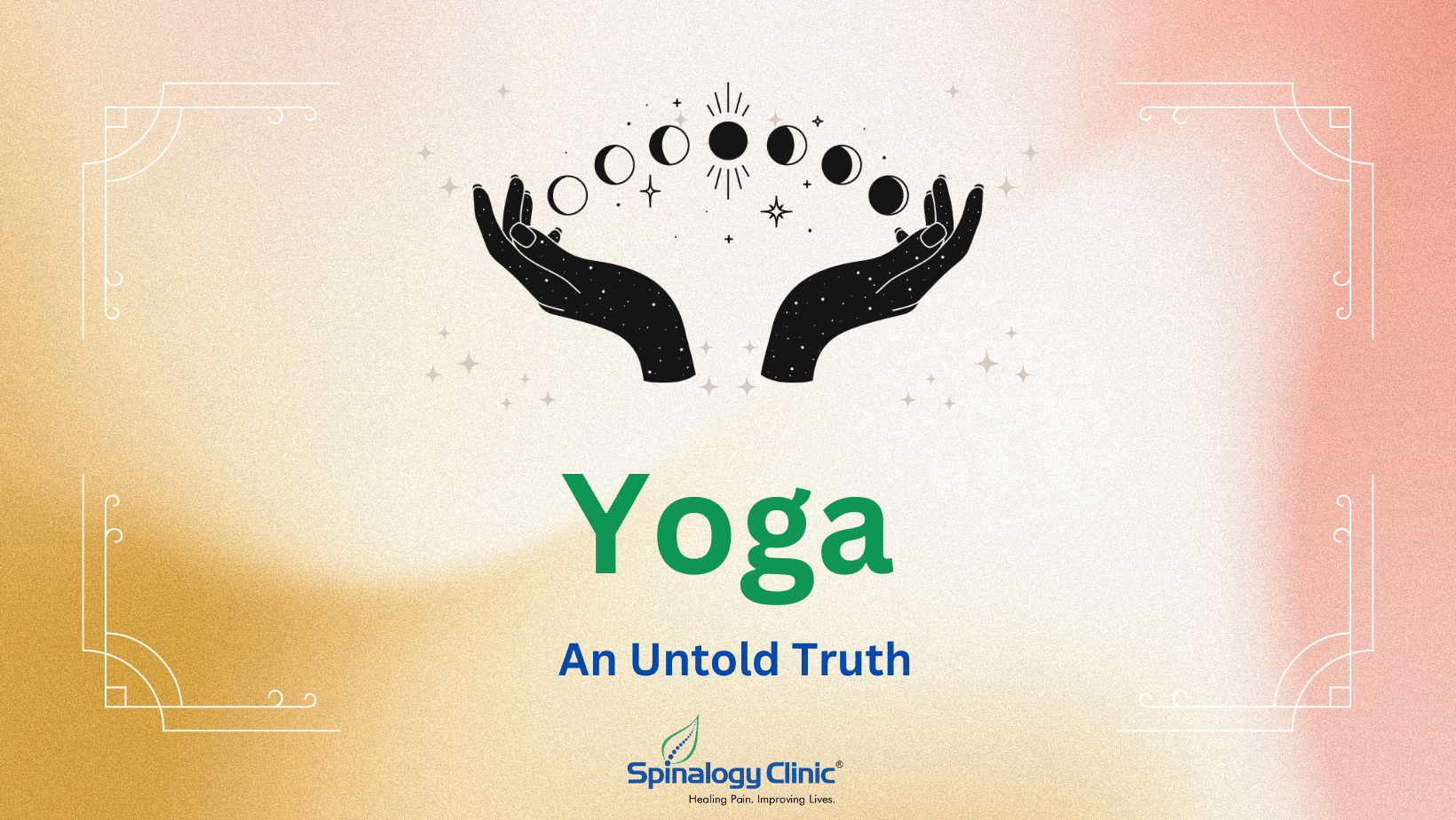Yoga
Yoga is an ancient Indian discipline to bring mental, physical and spiritual alignment in humans. Yoga was well preserved for centuries by the Indians and was practiced as a tool to balance the body, mind and soul.
Yoga – A union of the individual consciousness or soul with the Universal Consciousness or Spirit.
With the growing popularity of yoga and acceptance of its benefits by the western civilization, the practice of yoga has become subject to improper techniques and ideologies. It seems that there is an epidemic of different Yoga practices, some never even mentioned in our ancient texts. A lot of important precautions and complications are left untold during the process of yoga.
While Yoga in any form benefits the body, it is necessary to practice yoga with great caution. Here are some important facts to be considered while practicing yoga:-
Choose your Yoga instructor wisely : Yoga is a very delicate form of physical expression and it needs to be guided under an experienced person. With the Yoga pandemic spread across the globe, it has become very easy to become a so-called yoga expert. Inexperienced yoga professionals may not have adequate knowledge about yoga poses in health conditions. This may turn out to be dangerous, especially for people who are seeking yoga for a health problem rather than general vitality. It is advisable that you take an opinion of a certified yoga professional.
Find purpose, not competition: The purpose of Yoga is to create harmony and become one with yourself. Yoga is a very intrinsic process that is to be discovered individually. In pursuit to excel at Yoga, a person may become competitive and try to exceed the body limitations. Some teachers are aggressive and want to push the limits of their students. Make sure you understand your body and limitations before indulging in a competitive environment. Give time to the entire process and rediscovery of yourself. Following yoga postures without awareness can initiate or aggravate a problem.
Self-taught Yoga can be dangerous: While the availability of numerous DVD’s and online videos has made yoga easily accessible, it has also encouraged people to perform yoga wrongly without supervision. Engaging in unsupervised yoga can result in micro traumas, that is, injuries that cannot be seen, which can create future health problems. It is advisable to consult a doctor before starting yoga session and a certified yoga professional who can guide you correctly according to your health.
Yoga does not come without complications:
If not followed properly, yoga can lead to some common complications like:-
Injuries – Yoga injuries are very common. The most common yoga injuries include neck, back, knee and shoulder injuries. This may include tearing of muscles, herniated disks and carpal tunnel. Others are ligament and tendon tear and vertigo.
The 2012 “Yoga in Australia” survey found 1 in 5 respondents had incurred some sort of injury (or exacerbated an existing injury) in the previous 12 months of practicing yoga.
In 2010, the Consumer Products Safety Commission, USA reported that yoga-related injuries in emergency rooms and doctor’s offices rose to 7,369.
If care is not taken, even more traumatic injuries can occur, such as internal bleeding, muscle strains, and ruptures. Furthermore, pushing oneself too far during yoga can result in joint subluxation and dislocation. These injuries may require months of recuperation or even surgery.
Joint Pains : Applying too much pressure or maintaining certain asana poses incorrectly or for longer times can affect the joints. Joints most commonly affected are wrist, shoulder and knee. It is preferable to skip the painful poses and consult a doctor for a speedy recovery.
Over Exertion: Any form of yoga down without due diligence can lead to over exertion which may cause symptoms like dizziness, giddiness, fatigue, weakness and even nausea. Certain types of yoga such as power yoga and steam yoga can exert the body to higher levels. The American Council on Exercise (ACE) recently published a study (2015) raising concerns about Hot Yoga, especially those who have high blood pressure.
Higher temperatures and rigorous yoga can dehydration and electrolyte loss along with heat illnesses and heat stroke which can be harmful to the body. This can be particularly harmful for patients with heart problems.
Gastric Problems: Gastric problems may also occur from practicing yoga. If yoga poses are not performed correctly, gastric discomfort and symptoms like nausea, acidity, heartburn may appear.
Yoga During Menstruation: While yoga during menstruation is a debatable topic, it goes without saying that extra precautions are to be taken care of. Certain asana, especially inversions should be avoided during menstruation. Yoga poses can aggravate pain by stretching muscles and ligaments and can disturb menstrual cycle.
Yoga positions need more physical strength and exertion which is relatively depleted during this time, hence it is better to avoid rigorous yoga. Power yoga should be avoided and expert opinion should be sought.
Simple tips for a fruitful Yoga experience:
- Any time of the day is good for Yoga, but early morning is a good time to practice yoga. Do not indulge in rigorous yoga before bedtime.
- Do not perform yoga within 2 hours of meals.
- A warm up period before yoga sessions can reduce the risk of injuries, especially of muscles and ligaments.
- Listen to your own body. Don’t assume that the yoga instructor knows your body better than you do. If you experience pain or extreme discomfort, modify your pose or tell the instructor.
- Move at your own pace. Understand the process calmly.
- Drink plenty of water and be sure to get enough rest and sleep.
- Beginners should avoid advanced postures and be careful while executing difficult poses.
- Pregnant ladies and seniors should take extra precaution while performing yoga poses. They should do simple postures and asanas with the recommendation of doctors.
Take the advice of your doctor before proceeding for yoga sessions to treat a health condition.

_1771837540.jpg)
_1771836473.jpg)

